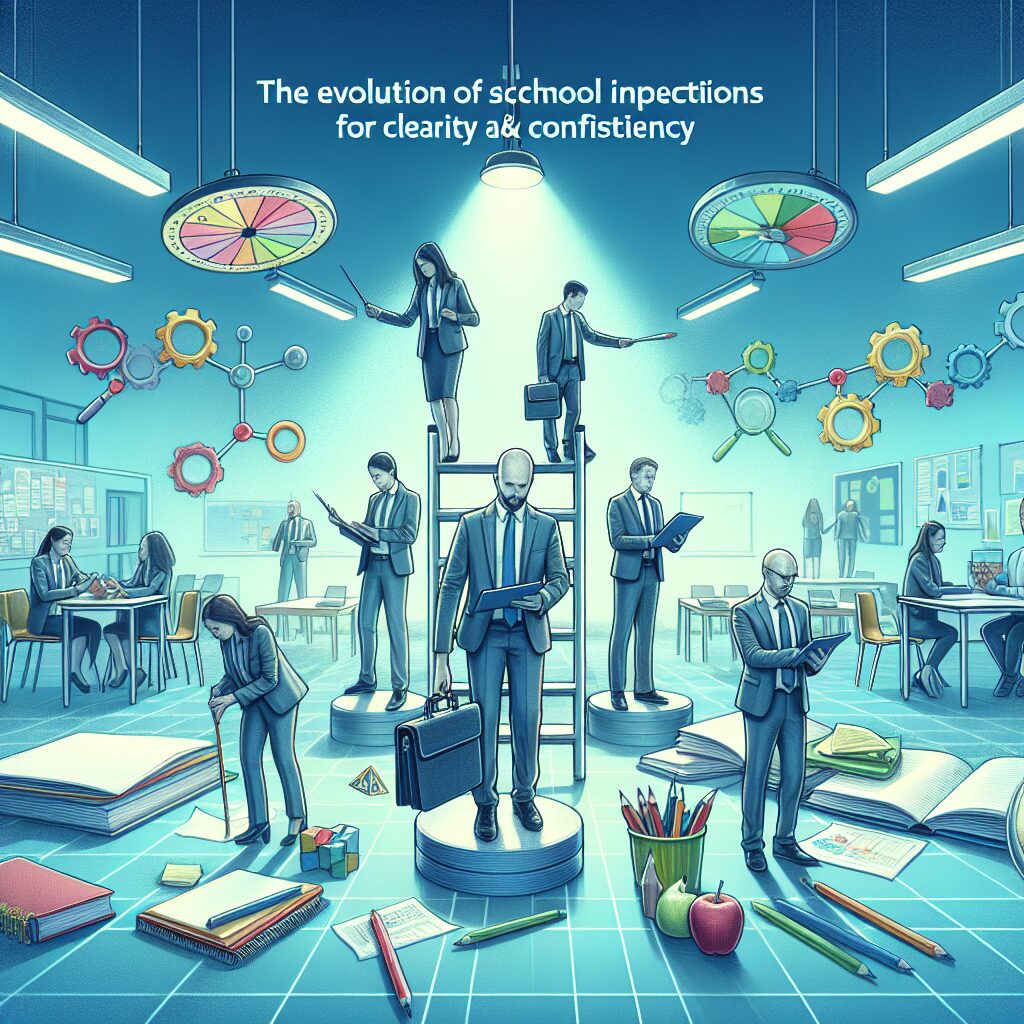
Embracing Change: Navigating the New Era of Ofsted Inspections

The Shifting Landscape of Ofsted Monitoring Inspections: Why You Should Care
Let’s get right to the point: if you think Ofsted inspections are just a box-ticking exercise, it’s time to think again. The latest insights from the working group at City Skills indicate a significant transformation is underway, and trust me, this isn’t just idle chatter in the staff room.
For those of us involved in education and training, these changes aren’t merely procedural—they’re opportunities for genuine progress. Let’s explore what these new monitoring inspections mean for us, and how we can position ourselves to thrive in this evolving landscape.
What’s Changing with Ofsted Inspections?
Firstly, it’s essential to understand that Ofsted inspections are shifting from mere compliance checks to a more comprehensive approach aimed at driving improvement. Yes, you heard that right—Ofsted isn’t just here to catch you out anymore.
Instead, inspectors will focus more on the educational impact you’re making. It’s about understanding how effectively you’re delivering services and whether your approach is genuinely helping learners. So, if you’re still treating inspections as a necessary evil, it’s high time to switch gears.
1. A Focus on Improvement
These inspections are meant to push us toward better practices, not just serve as a report card. This philosophy must resonate across your organisation. Setting clear goals for improvement will show that you’re not just adhering to standards but actively engaging in meaningful development.
So, think: what steps can you implement now to enhance your curriculum or delivery methods? Brainstorming with your team can open up new avenues to enhance the learner experience and increase your chances of a stellar inspection.
2. The New Off-site Approach
Next, let’s talk about the increased emphasis on off-site activities. This shift means that inspectors are keen to take a more holistic view of your operations. Expect moments where they’ll assess your practices based on evidence gathered outside traditional settings.
This could involve document reviews, feedback from stakeholders, and the digital footprint of your organisation. As such, it’s crucial to regularly evaluate and ensure that your online presence accurately reflects your mission and values. What does your website say about your ethos? Is it an inviting and informative space for potential learners?
3. Streamlined Communication
Communication with Ofsted will be more straightforward as part of these new arrangements. This means preparing for discussions that are not just about ticking boxes but sharing your insights and practices openly. You can expect more dialogue that encourages genuine collaboration.
To get ahead, cultivate a culture of transparency within your team. Documentation is key, but so is fostering a mindset where everyone feels empowered to contribute to the learning dialogue. By openly discussing successes and challenges, you can create a robust narrative about your organisation’s impact.
Be Proactive and Ready for Change
Now, you might be wondering: how can my organisation adjust to embrace these new expectations? It all comes down to being proactive rather than reactive. Anticipate the changes, analyse your current practices, and be ready to adapt.
Don’t wait until the inspectors are knocking at your door. Regularly review your objectives and assess whether you are genuinely meeting the needs of your learners. By doing this, you will not only be prepared for inspections but also foster a culture of continuous improvement.
Personal Insight: My Experience with Change
Reflecting on my own journey, I recall when Virgin started facing scrutiny in the travel sector. Initially, it was daunting, but we embraced the critique. It turned into a catalyst for innovation that led to improvements in customer service and operational efficiency. Sometimes, what feels like a burden can actually be the push we need to soar higher.
Final Thoughts
In conclusion, the landscape of Ofsted monitoring inspections is changing for the better. Embrace these adjustments and think about how you can use them as a springboard for improvement. Ultimately, your goal should be clear: to make a significant impact on your learners’ lives.
As you reflect on your current practices in light of these changes, I invite you to consider: how can you turn these new expectations into opportunities for growth? Let’s keep the conversation going.
#Ofsted #Education #CitySkills





